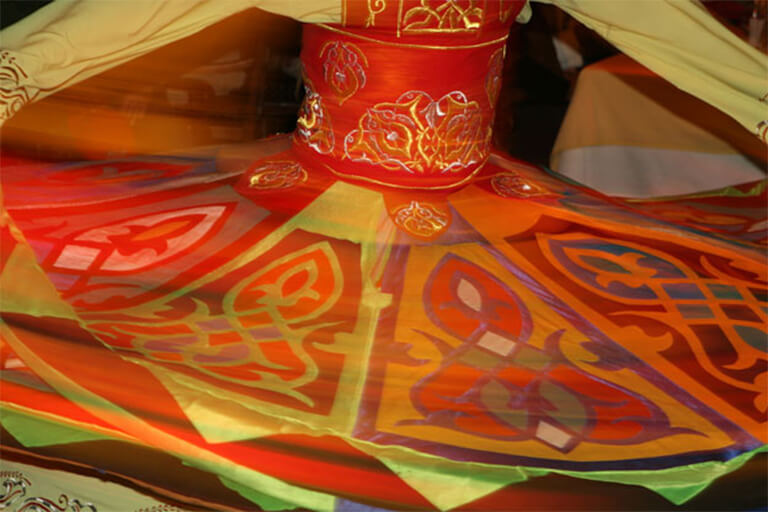Muslim Voices — Social Media

Audio transcript:
0:00:06:>>ROSEMARY PENNINGTON: Welcome to Muslim Voices. I'm your host Rosemary Pennington. When it comes to communicating to a broad audience the Internet is becoming a powerful platform. That's why some publications are choosing to snub the printing press altogether and put their content exclusively on the Web. But as Megan Meier found, online publications don't only benefit from reaching more people. By using social media like blogs Facebook and Twitter, they also get to hear back from their readers.
0:00:41:>>MEGAN MEIER: Elon magazine calls itself the Guide to Global Muslim culture. Last year Elon discontinued the print version of its publication in favor of strengthening their online community.
0:00:51:>>FARRAH HAMID: I'm Farrah Hamid. And I'm the editorial director at Elan magazine.
0:00:55:>>MEGAN MEIER: She explains how social media benefits Muslims around the world and how it makes Elan magazine a truly global publication.
0:01:02:>>FARRAH HAMID: The site itself is set up in a blog format. The articles aren't so much newsy as they are a little bit opinionated. They're still they still tend to be somewhat neutral in tone. But it definitely fosters a conversation rather than just kind of delivering news.
0:01:20:>>MEGAN MEIER: Farrah says the blog format encourages more communication between the writers and readers.
0:01:25:>>FARRAH HAMID: It is a place where people can foster discussion. You know, you can definitely express your opinions via comments. But we would never condemn anything really. And this is something that we have received criticism for as well. I mean we do cover some topics that may be considered taboo like homosexuality and drinking and things like that. But these are things that happen in Muslim culture as well. And we want to talk about it without getting preachy. And also this is a perfect example of some discussions that can happen online. I think there is a certain level of anonymity as well that allows people to express themselves a little bit more freely.
0:02:05:>>MEGAN MEIER: Addressing these issues in an open forum allows Muslims and even non-Muslims to probe for more information and alternate perspectives. Many of the comments on Elan's story pages reveal gratitude and encouragement for so-called moderate mainstream Muslim voices to be heard in the media.
0:02:21:>>FARRAH HAMID: So we're seeing a lot more of engagement happening on Facebook and on Twitter. And in fact at times even more so than the website itself.
0:02:31:>>MEGAN MEIER: Facebook and Twitter have proved to be valuable journalistic tools for Farrah.
0:02:35:>>FARRAH HAMID: I'm very active on Twitter. I think it's a great way to not only engage with readers of Elan but also to get story ideas and develop ideas that we already have. For example if I did a story once on the top 10 Twitter accounts for Muslims to follow. And I definitely solicited feedback on Twitter itself on Facebook.
0:02:56:>>MEGAN MEIER: Aside from helping editors to gather information on potential stories, social media provides Elan's readers with perspectives from around the globe.
0:03:04:>>FARRAH HAMID: It's definitely easier for people in different regions to connect on Facebook and on Twitter. Compared to print of course it's much easier for us to truly be a global publication because you know we're getting input from everywhere in real time. You know we have a blogger in Kuwait. We have a blogger on the West Coast. So it allows us to reach different regions because they tap into their own social networks, online I should say, which may have been a little bit more difficult if we didn't have the online forum.
0:03:35:>>MEGAN MEIER: It's this online form, Farrah says, that makes a difference for people in parts of the world where communication and press are more heavily restricted.
0:03:44:>>FARRAH HAMID: In certain countries it's not possible to speak very freely on a public format about topics for whatever threats that there might be out there. Being online you can be anywhere. And you can still express yourself. We recently covered a Web site that was started by Harvard and M.I.T. that is allowing people in Gaza to express their experiences as well. And you know these are anonymous I believe - maybe not all of them. This is something that they may not be able to organize there on the ground. It can happen online.
0:04:19:>>MEGAN MEIER: And what happens online doesn't have to be an expression of politics or justice or a message of any kind. It can just be a nice place for Muslims to hang out.
0:04:29:>>FARRAH HAMID: We do see a lot of web sites out there that are focused on dispelling this whole terrorism message and the negative connotations that Islam and Muslims have had to experience in the media. And those are great and those are very much needed. But our web site is a little bit more focused on just celebrating our culture and you know entertainment and art without getting too much into the politics of it all. Because at the end of the day we have our you know Muslims all around the world in their various communities cultural interests that have nothing to do with politics and may not even have anything to do with religion either.
0:05:13:>>MEGAN MEIER: For Muslim voices I'm Megan Meier.


 IU Global
IU Global